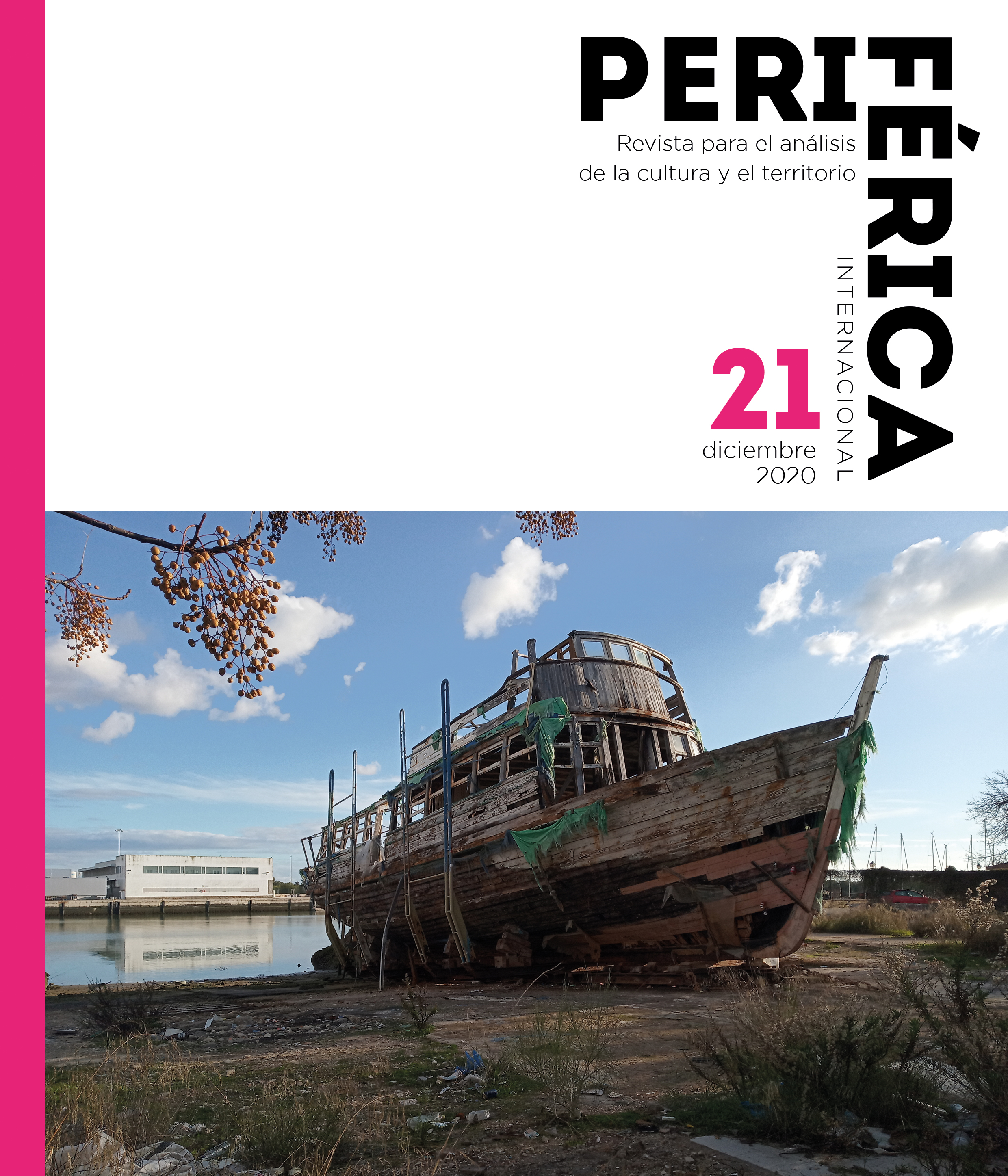Culture and rural space. Something more than saving tourism

DOI
https://doi.org/10.25267/Periferica.2020.i21.16Info
Abstract
The catastrophic eff ects derived from COVID-19 for the survival of the cultural sphere in the world have once again made rural areas, peri-urban environments and less populated areas a source of interest for millions of people. Personal and family security, environmental and economic living conditions and the improvement of equipment and services are factors that have already generated perceptible movements back to the fi eld of professionals and families. Knowing that cultural endowments and initiatives and installation costs are competitive advantages that increase this attractiveness, we approach cultural policies for the countryside, its conditions and constraints, through some of its most relevant initiatives in the democratic period in Spain with a special mention to a pioneering program: Culturalcampo.
Keywords
Downloads
How to Cite
License

Este obra está bajo una licencia de Creative Commons Reconocimiento-NoComercial-SinObraDerivada 4.0 España.
References
Aldershot, A., Goerlich, G. F., Ruiz Gonzalez, F., ChorénRodriguez, P. y Albert Pérez, C. (2015): Cambios en la estructura y localización de la población. Una visión de largo plazo (1842-2011).
Bilbao: Fundación BBVA.
Beck, U. (1998): La sociedad de riesgos: hacia una-nueva modernidad. Barcelona: Paidós.
Boff, L. (1996): Ecología: grito de la tierra. Gritode los pobres. Madrid: Trotta.
Brundtland,G.H. (1988): Our common Future. Oxford: Oxford University Press.
Consejo Económico y Social (2018): El medio rural y su vertebración social y territorial. Madrid: CES. Dispo-nible en: http://www.ces.es/documents/10180/5182488/Inf0118.pdf/6d616668-0cb8-f58c-075b-2251f05dad9f
Defensor del Pueblo (2019): La situación demográfi-ca en España. Efectos y consecuencias, separata del Informe anual 2018, Madrid. Disponible en: https://www.defensor-delpueblo. es/informe-monografico/la-situacion-demografi-ca-espana-efectos-consecuencias/
Dugin, A (2012) The Fourth Political Theory. Lon-don: Arktos Media.
Duxbury, N. y Heaher Campbell, H. (2009): Develo-ping and Revitalizing Rural Communities Through Arts and Culture. Summary Overview, Centre for Policy Research on Culture and Communities, Simon Fraser University, prepa-red for the Creative City Network of Canada.
ENCC, Culture Action Europe, IETM and Trans Eu-rope Halles (2020): Beyond the Urban: Contemporary Arts and Culture as Keys to a Sustainable and Cohesive Europe.
ENCC and 100+Stakeholders (2020): Crowdsour-ced Manifesto: Culture for Shared, Smart, Innovative Terri-tories, 2016-2020.
European Network for Rural Development (2016): Arts and culture in rural areas, Background material for the 5th NRN Meetng & Amsterdam Rural Forum.
Fernández León, J. (2020): “La cultura y el desa-rrollo territorial. Retos y oportunidades para el mundo rural” en Informe sobre el estado de la cultura en España 2020,pp.101-113. Fundación Alternativas. Disponible en: https://www.fundacionalternativas.org/las-publicaciones/informes/informe-sobre-el-estado-de-la-cultura-2020-la-ac-cion-cultural-exterior-de-espana-analisis-y-propuestas-pa-ra-un-nuevo-enfoque
García Dory, F. (2020): “Video keynote about Inland project” en for Beyond the Urban, webinar.
IETM (2020): FRESH PERSPECTIVES 9: Arts in Rural Areas.
Koolhaas, R. Countryside (complete lecture, Stedelijk Museum, (2012); Countryside (artículo, Icon, 2014); Country-side, The Future (exposición, Guggenheim Museum, 2020).
Mcdonagh, J., Nienaber, B. yWoods, M. (eds.) (2016): Globalization and Europe’s Rural Regions.London. Routledge
Muilu, T. y Kotavaara, N. (2010): Networking rural expertise, Linking competitiveness with equity and sustaina-bility: new ideas for the socio-economic development of ru-ral areas, Universidad de Oulu (Finlandia), European Rural Development Network.
Naredo, J.M. (1996): La economía en evolución. His-toria y perspectivas de las categorías básicas del pensamiento económico. Madrid: Siglo XXI.
Polanyi, K. (1944): La gran transformación. Boston:-Mass, BeaconPress.
Sachs, J. (2012): El precio de una civilización. Barce-lona: Galaxia Gutemberg.
Sandel, M. (2013): Lo que el dinero no puede com-prar – Los límites morales del mercado .Madrid: Debate.
Stern, N. (2007): El informe Stern: la verdad sobre el cambio climático. Barcelona: Paidós.
VV. AA. (2019): «Periferias. Nuevas geografías del malestar», monográfico, Papeles de Relaciones Ecosociales y Cambio Global, núm. 147, Madrid: FUHEM/Icaria.
Wiesinger, G. (2007): The importance of social capi-tal in rural development, networking and decision-making in rural areas, Association pour la diffusion de la recherche alpine.






